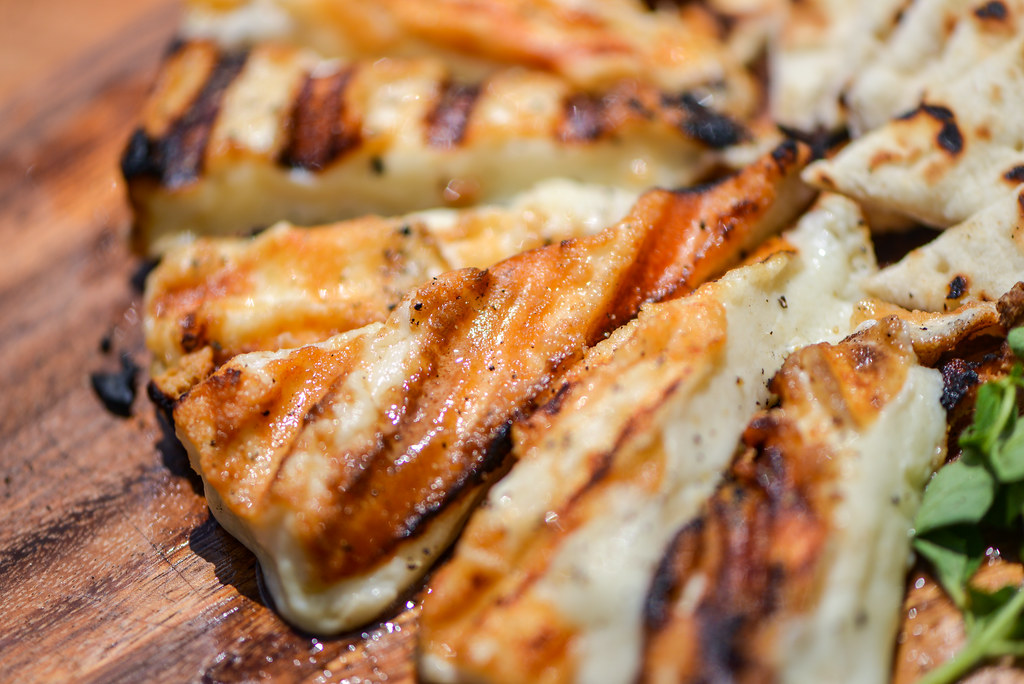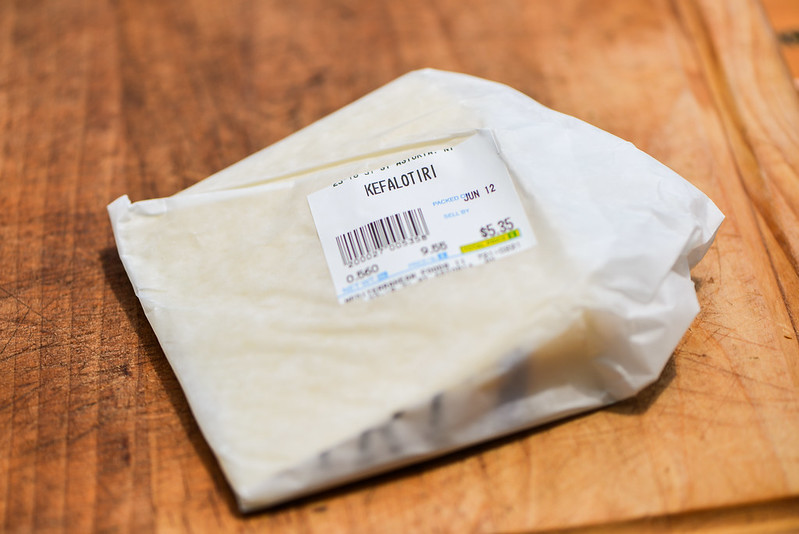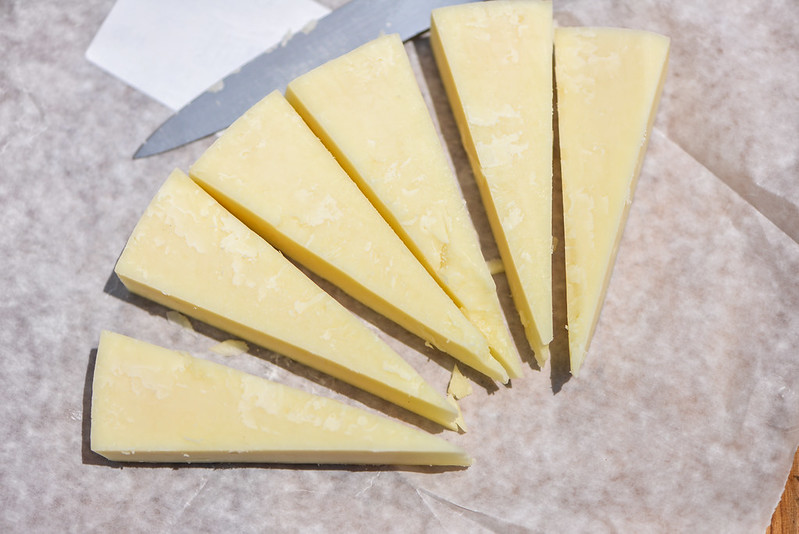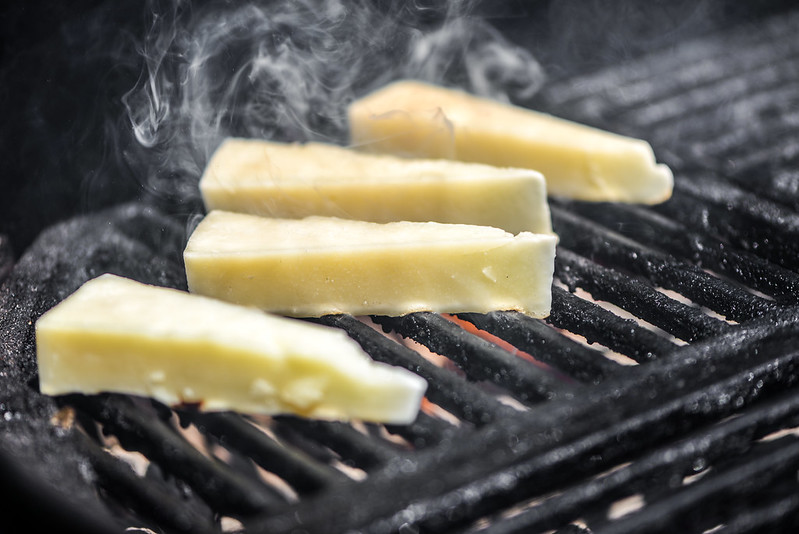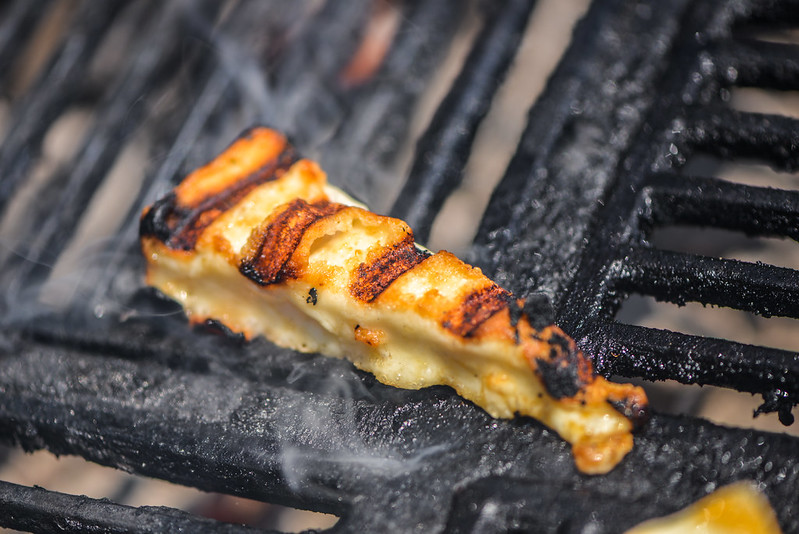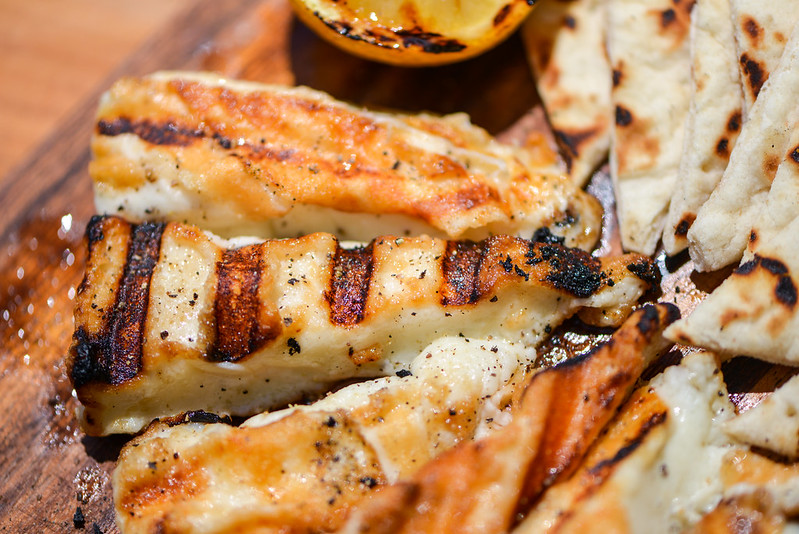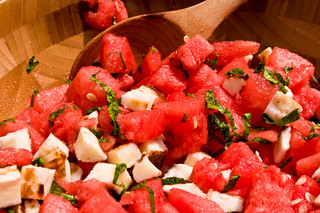Grilled Kefalotyri Cheese
It's a glorious time here in Durham—the rain has stopped, the mosquitos are gone, and I'm back to grilling in this beautiful weather. I made up for lost time this weekend and did some outdoor cooking on both days. On Saturday the locale was a co-worker's cookout, and while I wanted to add to the menu, I had to also carefully consider what I could bring that wouldn't interfere too much with the host's own grilling. This meant choosing items that could be done quickly and not take up too much space. I ultimately opted for a couple sets of skewers—Asian beef skewers and Thai beef rolls—but it got me thinking about other items that might fit the bill. In terms of ease of prep, time required to cook, and impressibility, this simple grilled kefalotyri would do outstandingly well.
Longtime readers know my unequivocal love for halloumi—a semi-hard goat and sheep milk cheese from Cyprus that's made for grilling or pan frying. Well, kefalotyri is fairly similar, being made from sheep or goat milk, but it's a step up in both hardness and saltiness, with a bit less tang. Without a Greek specialty store, it could be a tad more difficult to locate than halloumi, which I'm finding is gaining prevalence since multiple local groceries all carry it down here in Durham.
Like halloumi, kefalotyri has a very high melting point, which allows it to be browned on the grill without turning into a gooey mess. After buying a wedge of it, I decided the best way to prep it up for cooking was to cut it into slices just over an inch thick.
Besides how dead simply this dish is, a big reason I'd want to bring it to gatherings is the wow factor. Cheese over a hot fire isn't something you see everyday, and it defies the perceived conception that it should melt and seep through the grates.
When in fact, kefalotyri develops a beautiful crispy exterior that's one reason it's so great when grilled.
Once cooked, its texture is creamier than that of squeaky halloumi, but it still delivers a nice chew. It has a strong salty character that ensures that no bite will be flavorless. It's pretty good on its own, but I personally think it's best when served in traditional saganaki style—as an appetizer with a splash of fresh lemon juice and a sprinkle of black pepper. It's a simple preparation, but one that perfectly showcases its full potential. You can't get a dish much easier than this, and for what little effort and time that's required, the reward is big.
